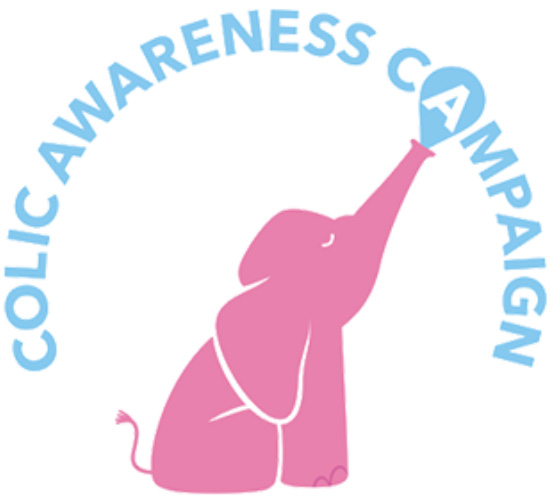Coping with colic
Colic is a condition that is not easily understood, it is thought to be a developmental stage affecting some babies that they usually grow out of around 12 weeks of age, although some babies take a little longer.
When a baby is crying a great deal, it’s a good idea to always check with a GP or health visitor to rule out any illness that may be causing colic type symptoms.

Here’s a checklist of things you can try;
- To help your baby you can try movement, rocking the baby from side to side either face up, or lying on their front along your arm. There are apps that demonstrate this.
- Take your baby out in the buggy, movement and fresh air often helps babies to sleep and it’s easier on your arms than holding a baby all day.
- Talking to your baby in a low monotone voice, humming or singing a repetitive tune, it doesn’t matter if you don’t sing in tune. Background noise, music or natural sounds can be downloaded as an app.
- A warm bath for baby can be helpful with the water above tummy level, especially if they do enjoy a bath.
- Massage the tummy gently, in a clockwise direction.
- Speak to your Health Visitor about the best time to start baby massage classes, as it can often help baby to settle and provide a relaxing time for a baby and parent to spend together.
- Even if you are tired and stressed, try and handle your baby slowly and calmly so that they feel reassured.
- Experiment with light levels, low light can be calming for baby, or try a black out blind.
The most important thing is to be re-assured that there is nothing you are doing wrong which is causing the colic and baby is otherwise healthy and will improve as the weeks pass. Knowing this should give you something to work towards.

Don’t forget…
Look after yourself
Accept offers of help from people you trust, use the time away from the baby to look after yourself, get something to eat, shower and wash your hair, or even have a short nap. Don’t use the time to catch up on housework, unless it is vital, your health and well-being is important you are looking after the baby. Everyone needs help sometimes, you are not a failure or a bad parent if you ask for a bit of help, when things are better you can return the favour.
Just remember this crying won’t last, and each bad day is a day nearer the good days when you can really enjoy your baby.
Support each other
This can be a very stressful time for both you and your partner, try not to blame each other if things don’t go right, words are often said in the heat of the moment when you are very tired that are regretted later. Support each other to get through this difficult time, and remember to discuss the things that you are finding hard. How you deal with this is good experience for coping with future family problems.
If you or your partner become depressed at this stage it is important that you see your GP, it is not unusual and it is not something to be reluctant to talk about, help is at hand.

